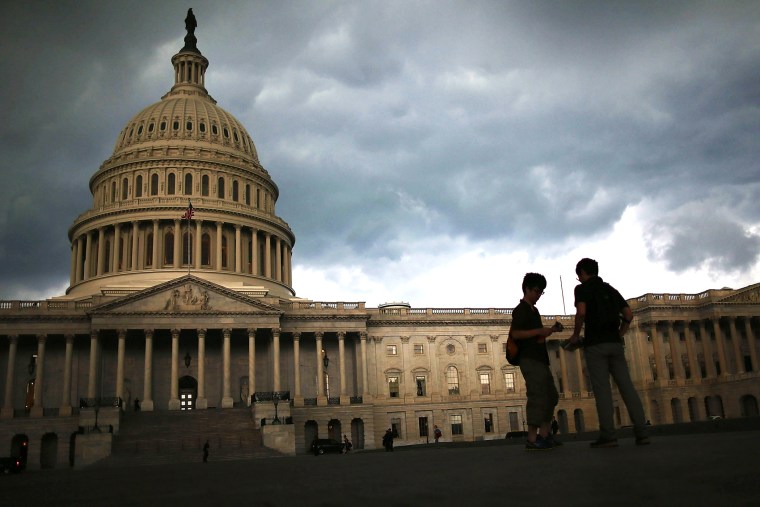The Republican effort to overhaul the nation's tax code isn't proceeding smoothly, but GOP officials, with a degree of panic and desperation, are scrambling to make it happen.
A New York Times report explained yesterday, "The Republican tax plan is a bit like having a baby to save a failing marriage. With divisions roiling the party, the prospect of a once-in-a-generation bill to cut taxes on businesses and individuals increasingly appears to be the last, best hope for a fractured establishment desperate to find common ground and advance an effort it has long championed as the pinnacle of Republican orthodoxy."
There's no shortage of moving parts to this, but while observers wait for GOP officials to get their act together -- there's still no bill, and we don't even know for sure if the House will pass its budget resolution -- it's worth appreciating just how little public appetite there is for the Republican plan.
Fewer than a third of Americans support Donald Trump's tax-cut plan, according to a Reuters/Ipsos poll released on Tuesday, as the U.S. president went to Capitol Hill looking for Republican backing for his proposal to slash tax rates for individuals and companies.
A new Fox News poll, released late yesterday, offered a variety of results on taxes, but among the findings was evidence that 78% of Americans are "frustrated" that "the wealthy are paying too little in taxes." Another recent Fox News poll found that 59% disapprove of lowering taxes on corporations.
The entire Republican gambit is predicated on the polar opposite conclusions.
A CNN poll released last week, meanwhile, pointed in a similar direction: 52% of Americans oppose the Republican tax reform proposals touted by Donald Trump, while 34% support them.
Indeed, circling back to our previous coverage, if there’s one consistency in recent public-opinion surveys, it’s the fact that the American mainstream doesn’t want Congress to pass massive tax cuts for the wealthy and corporations. This has been bolstered by poll after poll after poll after poll -- and yet, it's precisely what GOP policymakers are eager to do.
Indeed, Republicans have convinced themselves that the key to their success -- not just as a matter of policy, but in purely electoral terms -- is passing massive tax breaks. They’ve come to believe this with absolute certainty, insisting publicly that they believe their party will be politically “dead” unless they pass the still-unwritten tax plan. It’s become “an existential issue” for GOP leaders.
This is a bizarre dynamic because Republicans are trying to become popular by doing something unpopular. GOP officials are working from the assumption that if they ignore popular will, they’ll be rewarded by the voters whose wishes they’re ignoring.
I'm certainly aware of the broader circumstances: Republicans have made massive tax breaks for people who don't need them the centerpiece of their governing agenda, and if they fail, GOP officials fear looking inept. Republicans understandably believe they'll need some kind of accomplishments ahead of the 2018 midterm elections to show they didn't spend two years failing on one priority after another.
But while GOP leaders may not want my advice, here's a radical thought: to curry favor with voters, perhaps Republicans could work on goals Americans actually like?
